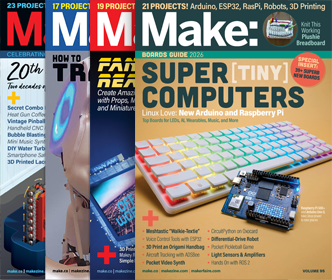Maker Faire and the Transformation of Education

Why Making Changes How We Learn
Making is about lifelong learning, from preschool through retirement. Making is about playing and having fun testing new ideas and experiences. Making is also about sharing what you know with others. Students don’t need to be taught how to do those things at Maker Faire; they need to be set free to do those things at Maker Faire. By empowering students and their teachers to explore creativity in all its forms, Maker Faire is setting new directions in education.
Maker Faire is the premier event for grassroots innovation and a celebration of maker culture. This year, more than 800 makers will exhibit projects in arts, craft, engineering, food, health, music, science and technology, each designed as an interactive “show & tell” of how the project works and what the maker learned from it. Maker Faire is also organized around hands-on activities like Learn to Solder where learners of all ages get to try it themselves.

The kids need to be solving real-world issues in our classrooms, not just taking notes about it…Science needs to be messy, and we have to be confident enough to get messy.
– Carolyn Barnhart, science teacher at Fredericton High School
“How ‘Makers’ Make the Classroom More Inclusive”, New York Times
Experiencing Maker Faire
School Groups
FRIDAY@MakerFaire offers early access to makers and exhibits to groups of 10 or more students from local K-12 schools and universities. We expect more than 5,000 students to participate in 2019.
Educators
With more than 50 hours of scheduled speaker programing and interactive workshops, Maker Faire Bay Area offers an entire weekend of invaluable professional development for STEM/STEAM educators.
Some principles of maker education
Making together. Makers rarely work in isolation. Social context supports making because we are inspired by the people, projects, materials and tools around us while we work. Makers are curious and motivated people who turn to peers for ideas, advice, guidance, support and collaboration.
Exhibition, not competition. Deadlines give makers all the motivation they need to do their best. Making is not about “losers” and “winners.”
Embracing failure. Makers identify challenges where they have a chance to solve new problems or tell new stories. Makers learn from their mistakes and try, try again until they complete their projects. Makers are unafraid of engaging in difficult tasks when they care about the results.
Tools keep improving. Emerging technologies and infrastructure encourage individualism and creativity. By including makers ready to test the capabilities of new tools, Maker Faire gives a glimpse into our technological future.
Everyone can make. Makers come from everywhere. Kids, adults, experts, newbies. Some makers have PhDs, others never graduate from anywhere. All makers spend long hours in their studios, shops, kitchens and garages finishing their projects…because they love what they do.



